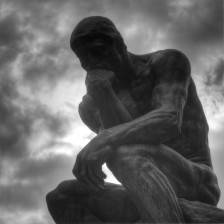I feel December has a charm, it marks the end of a (generally tiresome) year with anticipation of a (hopefully a good) year, ‘round the corner. Optimism is all around us, with Christmas adding to it. In these good spirits we very naively draft resolutions hoping these will be the steps for creating a better ‘us’ even though we know the last years’ resolutions did not work. Once Jan starts, we start off good, we work on our resolutions for the first two weeks, then we start slacking off. By the end of Jan we conveniently push the resolutions out of our mind and bury the guilt. The cycle repeats every December/Jan even though we know that life does not change suddenly just because the calendar changed.
Change has to be planned and worked on diligently, it’ll not happen in a day, and before we embark on the quest we need data on how we’ve been spending our time and what we want to achieve.
Time logging – track your time. What do you do every day? Where do you spend your time? What all do you do in a day, and how much time do we spend on each activity? We all think we know how we are spending our time but when you track time, you’ll be surprised to see the numbers. I thought I was spending only an hour going through Twitter and catching up news on the Internet everyday but in reality I was spending almost three hours on it. I used an app called ‘Hours’ to help me track my time. You can use any digital tool or just pen and paper to do it, but track your time for a month. Then, we’ll know what needs to be cut down and what needs to be worked on.
Look for efficiency – Once you identifed all the activities and hopefully weeded out the time wasting ones, we can concentrate on doing things efficiently. Are there better ways to do what we do? Can we group similar tasks based on their nature or context or tool required to do it? If you visit concierge desk two to three times a month can those all be clubbed into one? If you buy groceries at a mall can they be ordered online? If you spend time everyday in the morning searching for keys, can you put them everyday, every-time in only one place? Look for efficiency.
What do you want to do? What is the change you wanted to bring-in this year? What is that you wanted to incorporate? Generally there are two types of activities anyone would want to accomplish – new projects or cultivate habits.
- Projects – are any activities that take more than one step to complete. Now break the project down to actionable steps and schedule them into your day. With one step at a time in no time you would be tackling that big task you once thought was overwhelming.There might not just be one such project you want to complete this year. You may have multiple projects. Using some kind of system to track all of them is the only sane way to keep a tab of all you do. Anything from checklists to GTD apps or planners to organizers can be/should be used for the same purpose.
- Habits Two points to help cultivate habits are: small steps & consistency. What we do regularly become habits. Habits become character determining what we become and who we are. Habits are formed by doing things regularly. Once we identify what we want to cultivate, break it down to manageable steps. Now do them consistently without letting the ball drop. Soon you have a new habit. You can track your progress by marking it on a calendar or using apps like HabitList.
Review – We all need feedback, and who is the best person to give yourself honest feedback? yourself. Every week take some time to check how well you are doing compared to where you want to be. Course correct every week, adjust every week.
Reward – Dangle carrots before yourself. Setup milestones and reward yourself when you cross one. Nothing motivates our amygdala more than the anticipation of reward. Who knows you might pull through the last leg for that one chocolate cake you promised yourself.
As I said, life doesn’t change in a day. Only our undying commitment can. Happy new year to all.

Reply